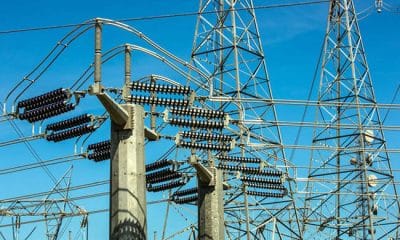Nigeria News
National Grid Collapses Again, Marking Third Breakdown In A Week

Nigeria’s national grid has collapsed once again, marking the third such incident in just one week.
The latest collapse occurred early Saturday morning, leaving many states in total blackout.
Data obtained from the Nigerian System Operator’s portal (niggrid.org) revealed that the grid recorded zero megawatts (MW) as of 9:20 AM today, exacerbating the ongoing power crisis that has plagued the nation.
The national grid on its verified social media account, X (formerly Twitter) confirmed that seven of the nation’s eleven electricity distribution companies had zero load allocation.
Only Benin DisCo (70 MW), Ibadan DisCo (60 MW), Ikeja DisCo (30 MW) and Eko DisCo (20 MW) had minimal supply as of 10.16 am.
The repeated failures of the national grid have significantly strained an already fragile electricity supply system, leaving businesses and households grappling with the consequences of unreliable power.
This latest incident follows two previous collapses earlier in the week, which have heightened concerns among citizens and raised questions about the effectiveness of the country’s power infrastructure.
The situation is further compounded by the high costs and unavailability of fuel, which have hindered alternative power solutions for many Nigerians.
The persistent power outages come in the wake of remarks made by the Minister of Power, Adebayo Adelabu, who highlighted the urgent need for a more resilient power infrastructure.
During the unveiling of Hexing Livoltek, an electricity meter manufacturing company in Lekki, Lagos State, the minister emphasized that having power grids in different regions or states could help eliminate the incessant collapses plaguing the national grid.
Adelabu pointed out that given the current deplorable state of the country’s power infrastructure, grid collapses are almost inevitable.
He asserted that implementing multiple power grids across various regions and states would ensure greater stability and reliability in electricity supply, a move that many stakeholders in the energy sector are advocating for in light of the ongoing challenges.






